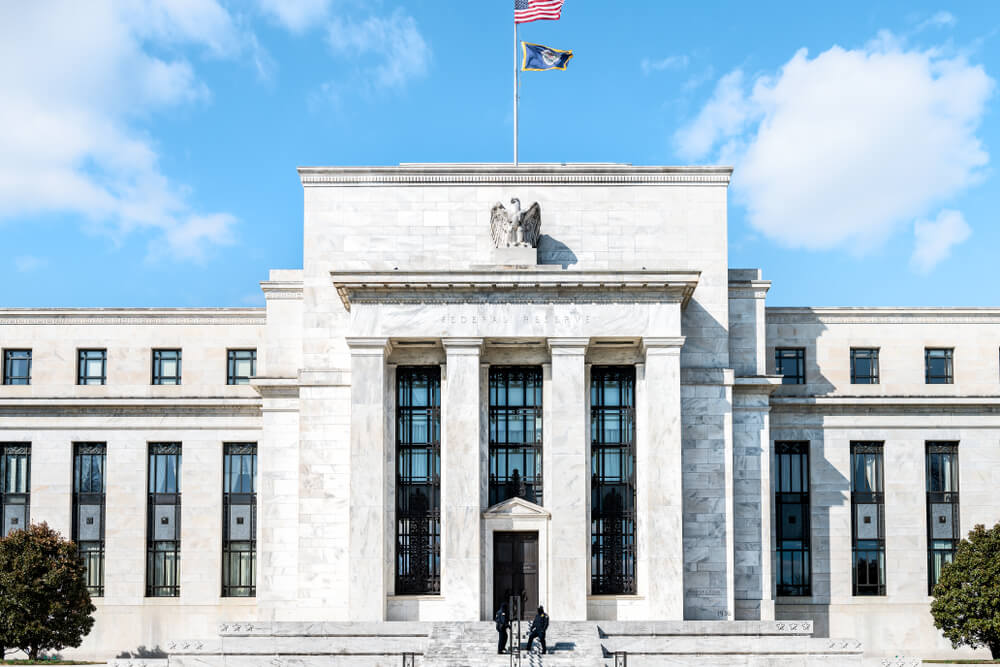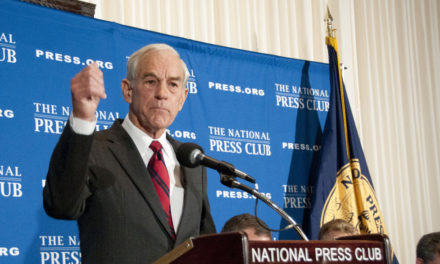President Donald Trump just lost one of his picks for the Fed Board of Governors when Herman Cain stepped aside Monday after reports he didn’t have enough Republican support to win confirmation in the Senate.
Trump’s other pick, Stephen Moore, also has come under fire after reports of sexism in some of his old columns. Moore claims he was joking, and it’s unclear at this point whether he, too, will ultimately step aside.
The New York Sun published an op-ed Monday, calling for economist Judy Shelton to be Trump’s replacement for Cain, who didn’t have enough support due to allegations of long-ago sexual improprieties that also derailed his 2012 campaign for the presidency.
Shelton, The New York Sun’s editorial board argues, is an ideal candidate.
President Trump was understandably reluctant to accept Herman Cain’s request to drop out as a candidate for the Federal Reserve board. He faced the reality of senatorial spinelessness. Four Republicans had indicated they’d shrink from voting for the former chairman of the Kansas City Fed, at least in part over allegations of long-ago sexual improprieties. They didn’t even wait for a hearing.
The good news is that there is an ideal candidate, the economist Judy Shelton. We had no quarrel with Mr. Trump’s choice of either Stephen Moore or Mr. Cain; they both would be fine governors. Mr. Moore still faces a revolt from the economists’ guild, the geshrai from which, John Tamny has argued, underscores the logic of Mr. Moore, who seems to still be in the running.
Yet even before Mr. Trump announced his plan to nominate either Mr. Moore or Mr. Cain, we’d issued an editorial calling Ms. Shelton “Trump’s Ideal Nominee for the Fed.” She’s an economist and holds a Ph.D. in business. Her main qualification, though, is that over the years she has published a brilliant critique of our monetary policy.
This has unfolded on, among other places, the op-ed pages of the Wall Street Journal, where, during the Great Recession, Ms. Shelton emerged as an advocate of the idea that our economic troubles spring in large part, if not exclusively, from the fiat nature of our currency. And that, as we put it in February, we need to bring back into our political economy the idea of sound money.
The kind of thing that makes us think of Ms. Shelton as so particularly ideal is an op-ed the Wall Street Journal issued arguing that currency manipulation is, just as Mr. Trump warned during the campaign, a real problem. She suggested that defenders of our current “global rules-based trading system” should be “wary of thinking their views are more informed than President Trump’s.”
The president, Ms. Shelton wrote, may have been “branded a protectionist” who is thereby “incapable of exercising world leadership.” Yet those who embrace the virtues of global free trade “disregard the fact that the ‘rules’ are not working for many American workers and companies.” Her long paper trail makes clear she understood that even before Mr. Trump got elected.
Ms. Shelton’s latest opus is out in the Journal this morning under the headline “The Case for Monetary Regime Change.” It notes that since Mr. Trump nominated Messrs. Cain and Moore to the Fed board, commentators have dismissed anyone sympathetic to a gold standard as what she called crankish and unqualified. But, she argued, it is “wholly legitimate” to question the infallibility of the Fed.
“No other government institution had more influence over the creation of money and credit in the lead-up to the devastating 2008 global meltdown,” she wrote. “And the Fed’s response to the meltdown may have exacerbated the damage by lowering the incentive for banks to fund private-sector growth.” She sketched how, even now, $1.5 trillion is “parked” in Federal Reserve district banks.
Ms. Shelton addressed the recent jibe by one of President Obama’s nominees to the Fed, Governor Lael Brainard, about how Mr. Trump’s nominees would need to advance “fact-based, intellectually coherent arguments that are based on evidence, that are consistent over time.” Ms. Shelton suggested the Fed start with a paper called “Reform of the International Monetary and Financial System.”
Issued by the Bank of England in 2011, it concludes that, as Ms. Shelton put it, today’s system has performed poorly relative to prior monetary regimes. She also suggested a look at the Obama administration’s 2015 Economic Report of the President, which, Ms. Shelton noted, “highlights the growth in middle-class incomes during the Bretton-Woods system of fixed exchange rates.”
Ms. Shelton argues that “intellectually fair-minded people should be able to debate the pros and cons of alternative monetary approaches without rancor.” No less a figure than Paul Volcker has argued that “the absence of an official, rules-based, cooperatively managed monetary system has not been a great success.” Now’s the time to elevate to the Fed those like Ms. Shelton with the vision to chart the road to reform.




